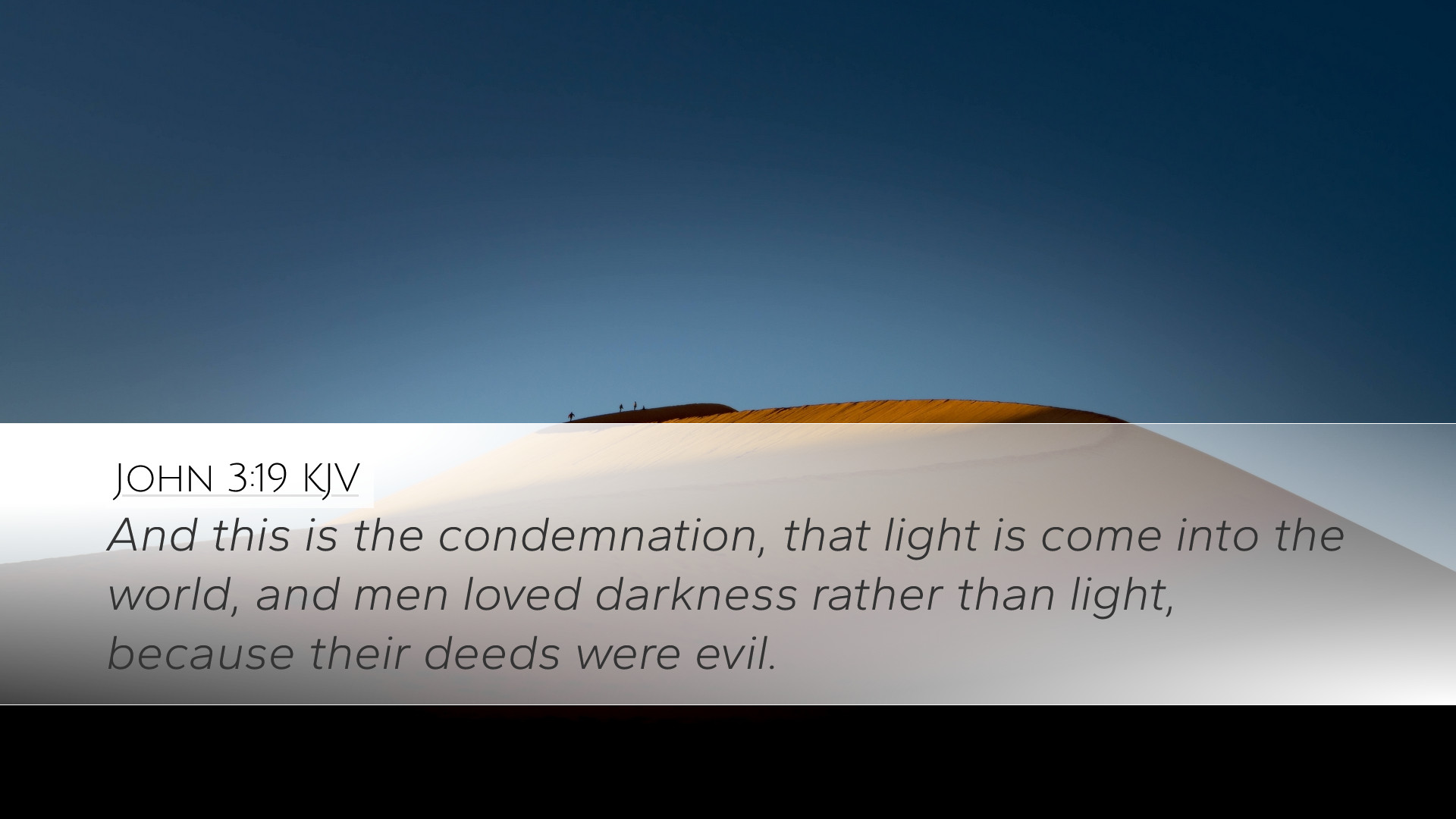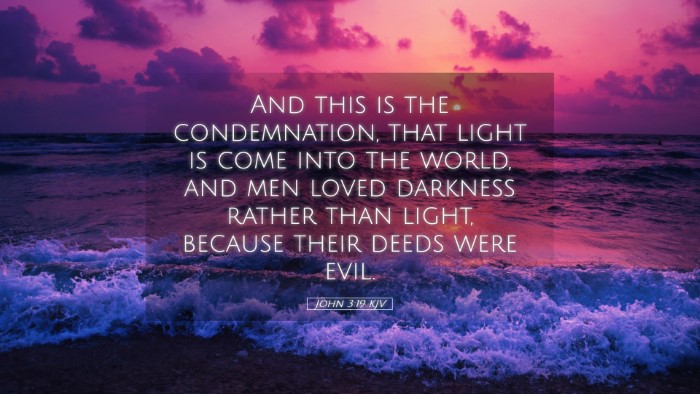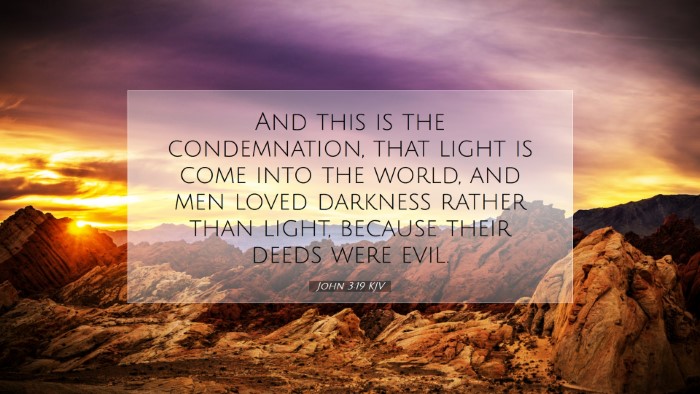Commentary on John 3:19
John 3:19: “And this is the condemnation, that light is come into the world, and men loved darkness rather than light, because their deeds were evil.”
Introduction
In John 3:19, the Evangelist presents a profound truth regarding the nature of humanity's relationship with the divine. This verse serves as a poignant reflection on the human condition, the nature of sin, and the stark contrast between light and darkness. Through the insights from public domain commentators such as Matthew Henry, Albert Barnes, and Adam Clarke, we will unfold the layers of meaning found within this text.
Exegesis of the Text
This verse follows the well-known passage of John 3:16, emphasizing the radical transformation that comes through Christ. Here, “condemnation” highlights not just judgment but the resultant state that comes from the rejection of Christ—light itself.
Insights from Matthew Henry
Matthew Henry elucidates that the condemnation of the world stems not from a lack of revelation, but from the willful rejection of that revelation. He states, “the light that has come into the world represents Christ, who is the true light that enlightens humanity.” Henry underscores that people’s love for darkness signifies a preference for sin and the ignorance of God's call to repentance.
- Light vs. Darkness: Light symbolizes purity and truth, while darkness represents sin and deception. Henry notes that this battle between light and darkness is a central theme in the Gospel of John.
- Human Nature: According to Henry, the evil deeds of men draw them away from the light. He highlights that, in their natural state, people are inclined towards sinfulness and rebellion against God.
Insights from Albert Barnes
Albert Barnes offers a critical examination of the phrase “men loved darkness rather than light.” He explains that the human heart is naturally inclined to sin and that genuine light reveals the corruption of human actions. Barnes states, “There is in the heart an aversion to the light because it brings conviction and change.” He implies that light not only exposes sin but also calls for repentance, which many resist.
- Condemnation: Barnes emphasizes that condemnation is self-inflicted. It occurs when individuals choose to remain in darkness despite the illumination provided by Christ.
- Deeds and Affections: He notes that love for darkness is intrinsic, arising from sinful deeds and affection towards unrighteousness, leading to spiritual blindness.
Insights from Adam Clarke
Adam Clarke’s commentary elaborates on the implications of light as a metaphor for divine truth and moral purity. He articulates that “light is come into the world,” suggesting that the arrival of Christ brought an opportunity for redemption. Clarke states, “The world had grown so accustomed to sin, that it does not wish to see or understand its own faults.”
- Christ’s Purpose: According to Clarke, the purpose of Christ's advent was to save rather than to condemn; however, mankind’s response to this light reveals the true state of their hearts.
- Rejecting the Light: Clarke emphasizes that the rejection of light is a choice made by individuals who prefer the comfort of ignorance over the discomfort of truth.
Theological Implications
John 3:19 has significant theological ramifications as it addresses the nature of sin, grace, and human response to divine revelation. The notion of light representing Jesus Christ correlates with the broader biblical theme of redemption.
- Sin and Redemption: The choice of darkness symbolizes humanity’s sinful condition, but the presence of light provides hope for redemption and transformation.
- Human Agency: The verse underscores the importance of human agency in accepting or rejecting God’s revelation, reinforcing the relational aspect of faith.
Practical Applications
For pastors and theologians, John 3:19 serves as a reminder of the importance of preaching the gospel as a light to a darkened world. It challenges believers to examine their own hearts for hidden sin and to encourage others towards embracing the truth of Christ.
- Evangelism: The task of evangelism is rooted in the understanding that many love darkness; thus, presenting Christ as the illuminating truth is vital.
- Self-Reflection: Similarly, individuals must regularly self-reflect to ensure that they are not unconsciously choosing darkness over light in their own lives.
Conclusion
In conclusion, John 3:19 encapsulates the profound struggle between light and darkness inherent to the human experience. The insights from Matthew Henry, Albert Barnes, and Adam Clarke provide a rich tapestry of understanding that emphasizes the transformative power of Christ in revealing truth and exposing sin. This verse continues to challenge and inspire believers to live in the light and share that light with the world.


